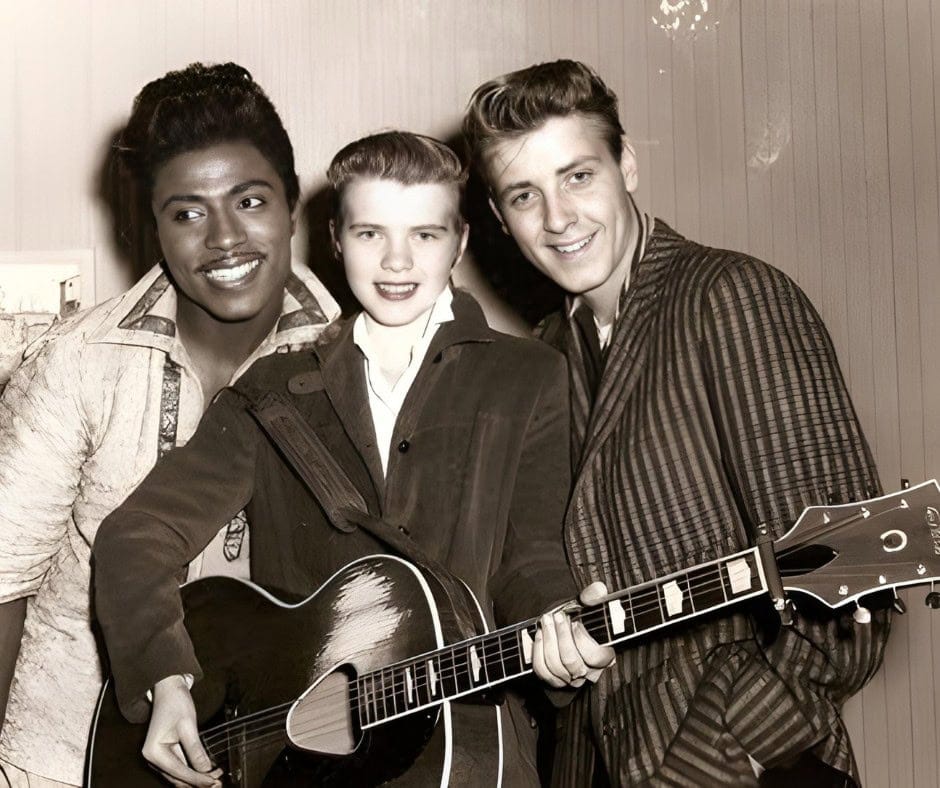About the Song
Background
- Origins: The song “Keep-a-Knockin’” didn’t start with Little Richard. Early versions date back to blues recordings in the 1920s and 1930s. The song likely has its roots much earlier in African American work songs and call-and-response patterns.
- Little Richard’s Version: Little Richard transformed it in 1957, injecting his explosive energy, wild piano, and those iconic piercing screams. This version propelled the song to mainstream popularity and solidified its status as a rock and roll classic.
Themes
- Frustrated Desire: The song is about a lover trying to get in, being barred entry. This could be a literal interpretation (someone can’t get into a party or their lover’s house), or it could be more metaphorical about being excluded socially.
- Persistence: There’s a strong undercurrent of determination. The narrator is not giving up easily. This can be seen as a declaration of sexual intent, or even social defiance (“I belong here despite what you say”).
- Playfulness: Despite the frustration, there’s always a sense of fun, even humor in the song. This is partly in the delivery, but also in the over-the-top lyrics.
Lyrics
Here’s a look at some key lyrics and what they convey:
- “Keep a-knockin’ but you can’t come in” The core refrain – repetition emphasizes the frustration and persistence.
- “I heard you knockin’ but you can’t come in” There’s an element of taunting and power dynamics here.
- “Come on over baby, got a whole lotta chicken” Food imagery was common in classic blues, often with a sensual double meaning.
- Nonsense vocals: Little Richard’s shouts, yells, and bursts of “woo!” are as much a signature as the lyrics. They amp up the energy and hint at the wild, unrestrained spirit of rock and roll.
Why it Matters
Little Richard’s “Keep-a-Knockin’” is a landmark because:
- Pure Rock and Roll Energy: This song embodies the raw, untamed spirit of early rock and roll in its purest form.
- Influence: Countless artists, from The Beatles to Led Zeppelin, were influenced by Little Richard’s energetic performances and this song in particular.
- Cultural Significance: The song’s themes of frustrated desire against social barriers have made it an anthem for outsiders and rebels, resonating beyond its musical influence.
Video
Lyric
Keep a knockin’ but you can’t come inKeep a knockin’ but you can’t come inKeep a knockin’ but you can’t come inCome back tomorrow night and try again
You said you love me and you can’t come inYou said you love me and you can’t come in, woo!You said you love me and you can’t come inCome back tomorrow night and try again, whoa!
Keep a knockin’ but you can’t come inKeep a knockin’ but you can’t come inKeep a knockin’ but you can’t come inCome back tomorrow night and try again
You said you love me and you can’t come inYou said you love me and you can’t come in, whoaYou said you love me and you can’t come inCome back tomorrow night and try again, whoa!
Keep a knockin’ but you can’t come inKeep a knockin’ but you can’t come in, whoaKeep a knockin’ but you can’t come inCome back tomorrow night and try again
You said you love me and you can’t come inYou said you love me and you can’t come inYou said you love me and you can’t come inCome back tomorrow night and try again, whoa!
